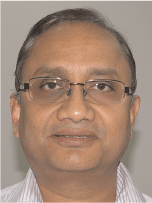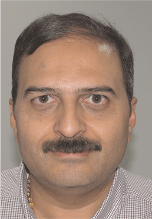Innovative structural engineering and execution approach to delivering modular facilities for the Gorgon Project
Partha Dev A and Parag Shah AChevron Australia Pty Ltd.
The APPEA Journal 54(2) 487-487 https://doi.org/10.1071/AJ13060
Published: 2014
Abstract
The Gorgon Project on Barrow Island, located about 60 km from the northwest coast of Australia, was given the green light in September 2009. Construction and commissioning of the Gorgon LNG trains is limited to a 300 hectare development on a Class A reserve. Our commitment to the environment has driven our use of extensive modularisation to build the LNG trains. All of the major components have been pre-fabricated and assembled offsite into transportable parts, significantly reducing our footprint on the island. Subsequently, the structural modules (including pre-assembled Piperacks) have undertaken a journey on a scale and complexity unmatched in the global LNG industry. The modules have been designed and built at diversely located engineering, fabrication and construction sites. These are then loaded out and sea transported from different international shipyards in more than 65 sea transportation voyages, carrying more than 300 modules weighing more than 280,000 tonnes under constantly varying and hostile sea-faring conditions. The modules reach their final destination at Barrow Island to be installed without impacting the island’s uniquely treasured flora and fauna. These modules are designed to operate for its entire service life on cyclone-rated Barrow Island, which in the past has registered the highest ever wind gust of 408 kmph. Design and execution of the modules to sustain severe environmental conditions during its service lifecycle has been made possible by employing an innovative engineering mindset supported by robust structural methodologies to develop suitable facilities that can operate in a highly complex environment. This extended abstract showcases the structural engineering and execution methodologies that successfully overcame the challenging journey of the modules, thereby delivering a world class development co-existing with conservation in a pristine nature reserve on a very limited footprint.

Partha Dev is the Lead Structural Engineer for the Chevron-operated Gorgon Project on Barrow Island and is presently based in Perth, WA. He has 25 years of offshore and onshore structural experience in the oil and gas (upstream, midstream and downstream) sector. Prior to joining Chevron in 2012, Partha has held technical leadership positions on a significant number of major capital projects for international contractors and operators across the globe, most notably projects on the northwest shelf of Australia and floating LNG development projects. Partha has a Bachelor of Engineering (civil) degree from Indian Institute of Technology and a master’s degree in Offshore Engineering from Nanyang Technological Institute, Singapore. He is an Associate Fellow at the Australian Institute of Management (AIM), WA. Partha is presently serving as a male executive board member on Women in Oil & Gas WA (WIOG) and is also the chairperson of Chevron’s Diversity network. Member: MIE-Aust (Engineers Australia) and AFAIM (Australian Institute of Management). |

Parag Shah is the Deputy Engineering Manager in charge of the Technical Integrity for the Chevron-operated Gorgon Project on Barrow Island and is presently based in Perth, WA. Prior to transferring to his current role in Perth, Parag was the Deputy Engineering Manager responsible for managing engineering in the SE Asia offices both in Jakarta, Indonesia and Singapore. He has 25 years of experience in technical and project management both in the US and overseas business units within Chevron. Parag’s career spans across multiple facets of oil and gas, including on-shore upstream, downstream (refining), off-shore upstream and now LNG plants. Parag is a licenced Professional Engineer since 1998, registered in the US state of Louisiana. Member: Louisiana Professional Engineering and Land Survey Society. |


